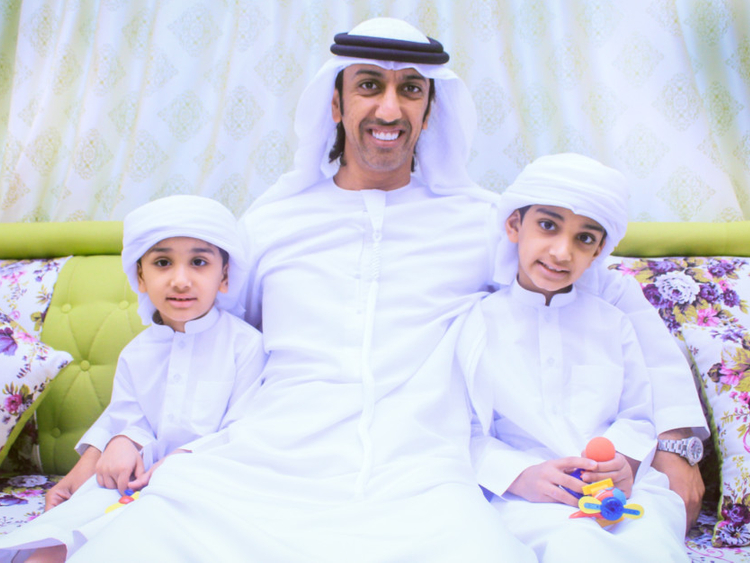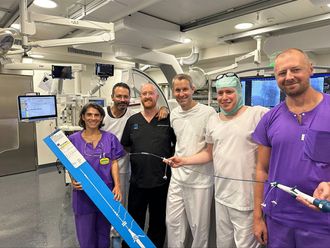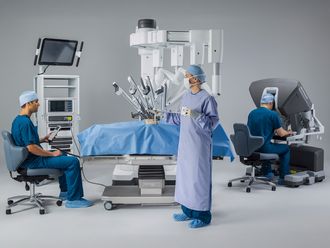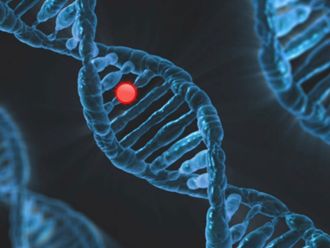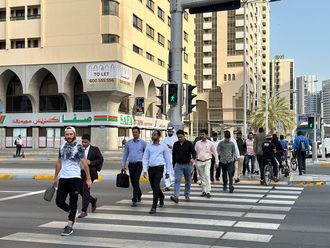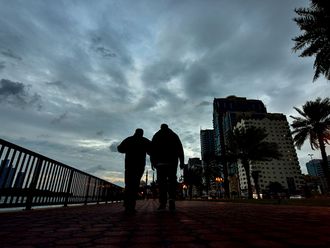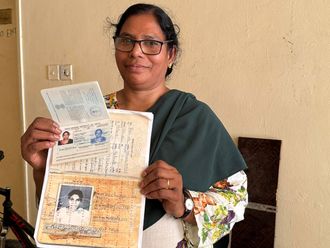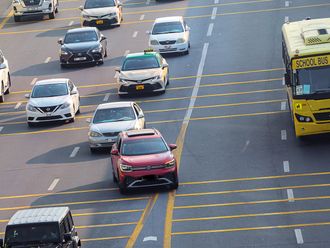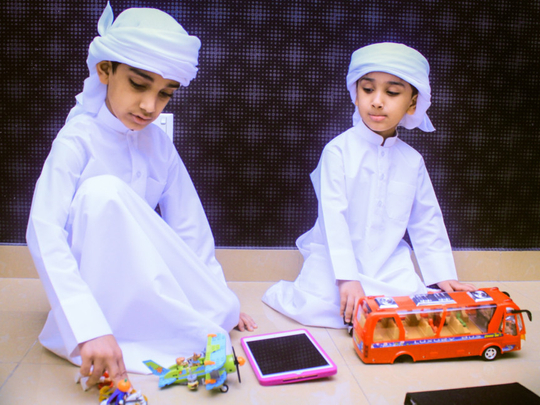
Dubai: It is the stuff miracles are made of. The life of a seven-year-old Emirati boy, Zayed Al Hammadi, was saved by the stem cells donated by his three-year-old brother Mohammad.
Both Zayed and Mohammad, sons of Nouh Al Hammadi, live with their family in Al Ruwais, Abu Dhabi.
Zayed was diagnosed with beta thalassaemia major, a severe form of an inherited blood disorder that requires regular transfusions. His condition was deteriorating fast and the family were given their last chance of hope thanks to the storage of Mohammad’s umbilical cord blood. His cord blood had been harvested and stored with CryoSave Arabia at his birth.
At present, stem cell transplant is the only known cure for beta thalassaemia major. A detailed Human Leukocyte Antigen (HLA) typing that is done to match a potential donor and recipient, showed the siblings were compatible. Following this, the stem cell transplant was carried out at the end of 2014 at Johns Hopkins University School of Medicine, Baltimore, Maryland, USA, in conjunction with CryoSave Arabia. A sample of the stem cells was stored and shipped after an in-depth testing, in compliance with strict AABB (American Association of Blood Banks) and FDA criteria.
Zayed underwent a combined transplant using a combination of cord blood and bone marrow to optimise the chances of success. Since the transplant, the family has returned home to Abu Dhabi where Zayed has made a full recovery and no longer manifests any signs of beta thalassaemia major.
An overjoyed Al Hammadi, the children’s father, said: “Our son is in much better condition after the transplant, it has been remarkable. We are incredibly glad we made the decision to store the cord blood in the first place otherwise our family’s future would be very different.”
Kenneth R. Cooke, managing director, Paediatric Blood and Marrow Transplantation Programme, Johns Hopkins University School of Medicine, who carried out the surgery, said: “Stem cell storage really can change lives and to see such a positive outcome with Zayed’s case shows just what is possible. I would always recommend families to store their child’s cord blood whether they know of any possible health issues or not, as it can be used in the future for their benefit and that of other family members. As Mohammad’s stem cells were stored outside the US, in the UAE, it was imperative to ensure all the necessary criteria were met in terms of accreditation and compliance, as well as the safe and timely transportation of the sample. I have no doubt that the infusion stem cells from this related HLA-identical cord blood unit contributed significantly to the successful outcome Zayed has experienced so far. I look forward to working with CryoSave Arabia again in the future to help more families in these situations.”
Mai Ebrahim, Lab Director and Head of Quality Department at CryoSave Arabia, said: “I feel privileged and blessed that I was able to visit the family and be part of the transplant procedure. It is such a great honour to be working in a field that saves lives and the Dubai facility reflects our desire to be the best. We are trusted with families’ valuable stem cells so it is absolutely essential that we ensure each sample is processed, stored and released successfully. There is no room for error.”
What is beta thalassaemia major?
Beta thalassaemia major is an inherited blood disorder that occurs when the genes governing the production of haemoglobin (the protein in red blood cells that binds to oxygen and carries it throughout the body) are flawed. The most common treatment is to receive regular blood transfusions to keep the body stocked with healthy red blood cells but they can also cause unhealthy accumulation of iron, which can damage the heart and other organs.


